Barrow Owl Sanctuary scrutinised by watchdog
- Published
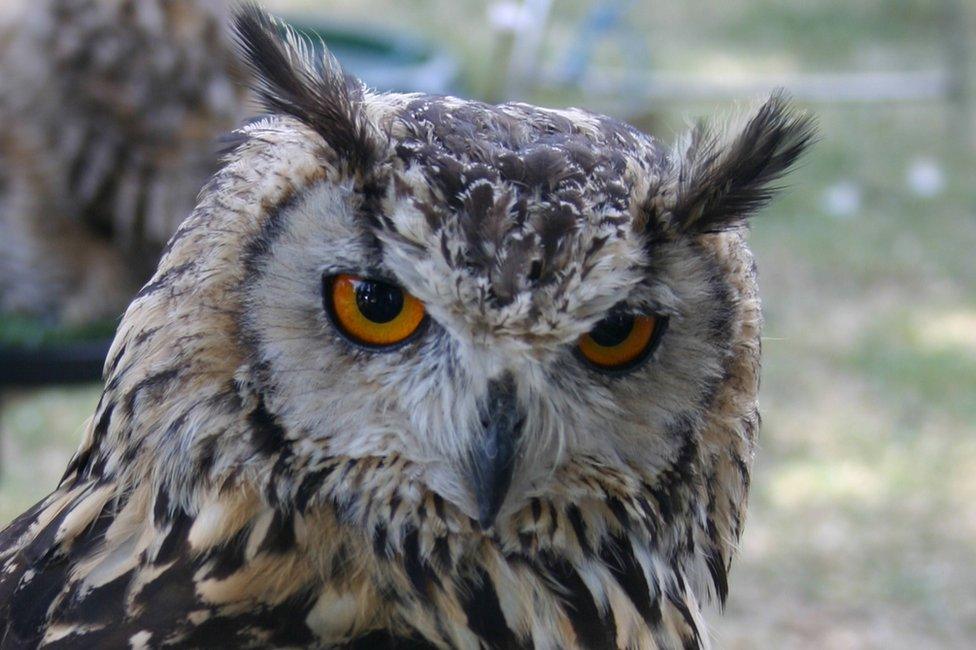
The sanctuary cares for sick or injured owls, returning some to the wild
A charity is being investigated after concerns were raised about how a £225,000 legacy and other funds were spent.
The Owl Sanctuary in Barrow, Cumbria spent tens of thousands of pounds on a change of status. Experts have told the BBC that, while the change could have benefits, the costly process used to achieve it may not have been necessary. Questions have also been asked about money spent on a car and on rent for a field owned by a family member.
Founder Paul Rose said he had been advised not to respond to the BBC's questions while his solicitors were addressing "misleading, inappropriate and false comments" he said had been made about the sanctuary and himself.
The Charity Commission said it had "an open regulatory compliance case into the charity" but this meant it could not comment.
The move is the commission's first stage in responding to concerns about a charity. It does not mean the commission has found wrongdoing and is not a formal investigation.
The RSPCA has also been looking into the sanctuary, after seizing a number of its owls in March.
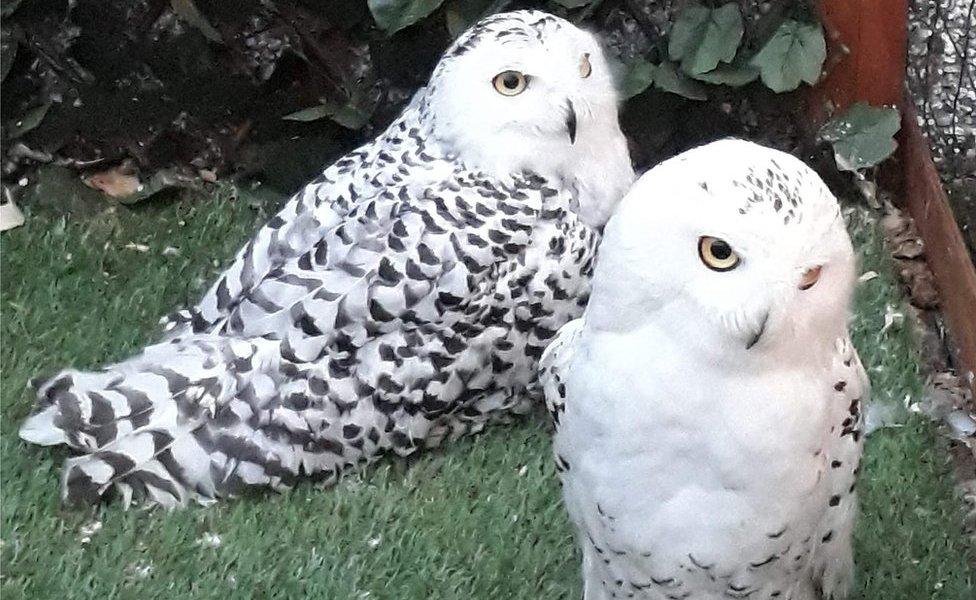
With so many owls to name, Disney came in handy for Elsa and Anna
The sanctuary's history is complicated.
For more than seven years it existed as a limited company but, in 2019, it was registered as a charity. Documents seen by the BBC show Mr Rose decided this was necessary after enlisting a fundraising firm, to which he paid more than £9,000 between November 2020 and December 2021.
In the paperwork, he states that "to attract a higher level of donations" it was "legally necessary" to change the sanctuary's status.
However, according to liquidation and charity law experts, while charity status does bring tax advantages and other benefits, it is not legally necessary.
Moreover, even if those benefits were deemed desirable, there is no need for a solvent company wanting to become a charity to do so via liquidation, which cost the sanctuary tens of thousands of pounds.
The process also took time. For 17 months after the charity was registered nothing happened. When liquidators were finally appointed, the process then took a further year. All this time the sanctuary existed as both a company and a charity, run by Mr Rose.
The enlisting of liquidators coincided with the sanctuary receiving a massive windfall. A retired secondary school teacher from Sheffield had died, leaving an estate worth a little over £4m. Most of this she bequeathed to 19 charities, of which 12 were engaged in helping animals. The Owl Sanctuary received just under £220,000.
But cashing the cheque led to another complication - the charity did not have a bank account. In documents seen by the BBC, Mr Rose explained illness and banks' reluctance to accept new business during the pandemic prevented him setting one up. So he continued to use the company account he already had and it was into this that the legacy was paid.
By the time an additional £6,215 was sent from the benefactor's estate in August 2021 a charity bank account had been opened.
This money is due to be declared in the next set of charity accounts. But the original payment, which went into the company account, is not mentioned in charity accounts for February 2020 to February 2021 which just declare donations amounting to £24,527. There are no accounts filed for the company for that period.
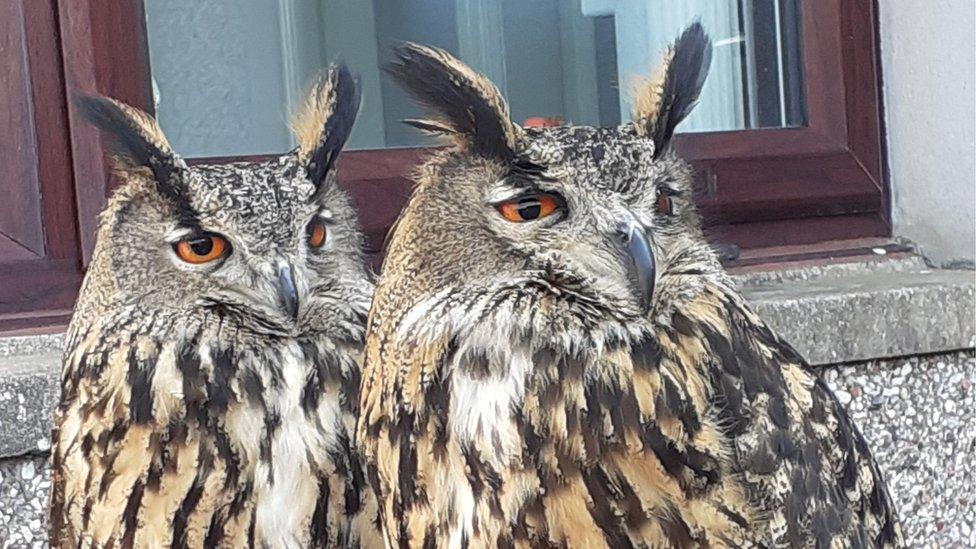
Owls Bonnie and Clyde
When liquidators were appointed in January 2021 they concluded the £314,000 paid into the company bank account in the 17 months since the charity was created should have been paid to the charity, making it a creditor of the soon-to-be-liquidated company.
Although, on the face of it, the sanctuary was doing what it had always done, they judged one version of it now owed money to the other. Most of this was the legacy, as the charity's usual bank balance was in the low thousands.
But it was not as easy as simply transferring the money from one entity to the other, although a charity expert has suggested a simple transfer would have been possible.
Some money had been spent on the usual running costs. Three payments amounting to £20,000 had also been made from the company bank account to Mr Rose in the month after the legacy was received.
Of the £152,445 left in the bank, £82,850 was eaten up by the liquidators' fees and costs.
A car, bought by the sanctuary for £34,000, was sold by the liquidators for £29,500 to realise cash which could be distributed to creditors. It was then bought by the charity with documents showing it was paying £1,160 a month for it.
So, of the £289,000 the liquidators ultimately decided was owed to the charity, it received just over £95,000 and other creditors about £5,000.

Timeline of events:
February 2012 - Owl Sanctuary Limited created
August 2019 - Owl Sanctuary charity registered but the company continues
November 2020 - Owl Sanctuary receives a legacy of £219,421 which is paid into the company bank account
November 2020 - a car is bought for £34,000
January 2021 - the company is put into liquidation
March 2021 - the charity bank account is finally opened
August 2021 - a further £6,215 is received from the benefactor's estate
January 2022 - liquidation is completed
March 2022 - birds are removed from the sanctuary by police and RSPCA

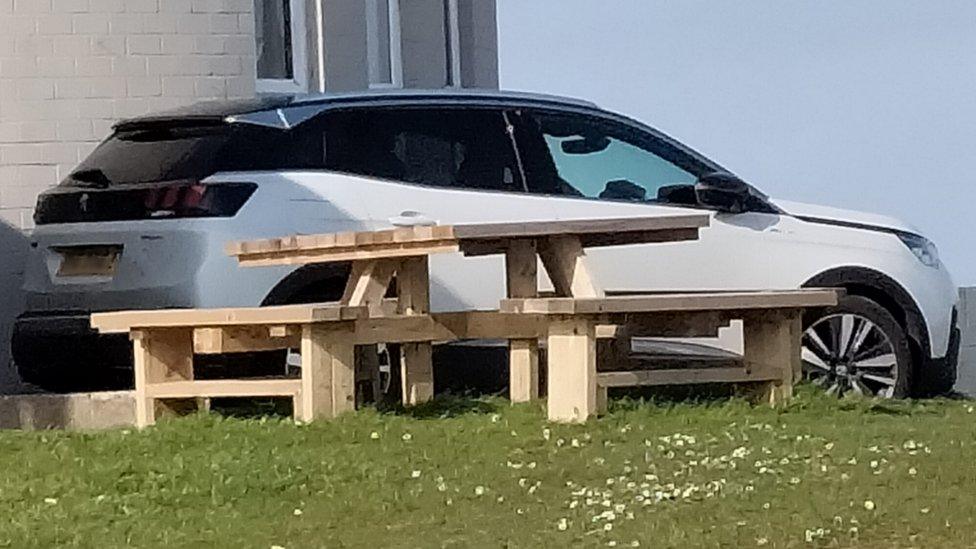
Charity documents say this car was used to transport owls
The purchase of the car is a cause of concern to one of the charity's trustees and a former member of staff.
Records show a nine-month-old Peugeot hybrid was bought about a week after the legacy was received, although the sanctuary had bought a van for transporting owls 17 months previously, external.
The BBC has seen messages from the chairman of the charity's trustees, David Grove, in which he queried the car purchase, saying it was "distasteful" that Mr Rose had bought it without, he claimed, asking trustees.
Mr Grove questioned the benefit to the charity of a vehicle that was unsuitable for carrying owls. He also raised concerns about the level to which he was kept abreast of the charity's bank balance and finances.
He said the first he knew the company had been put into liquidation was when paperwork arrived in the post.
According to another message from Mr Grove, when he asked Mr Rose what was happening Mr Rose's reply was: "You don't have to do anything, I've sorted it online".
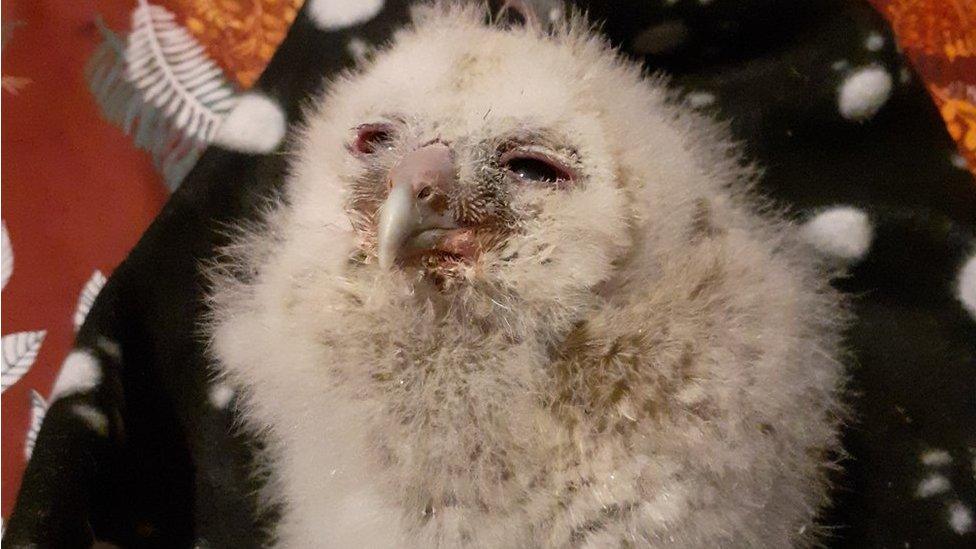
The sanctuary looked after this baby found at Wray Castle
The charity's accounts show it now owns land worth £100,000, which appears to have been bought in January. But the BBC has learned the sanctuary allegedly paid more than £7,000 over two years to rent a section of field from Mr Rose's stepson, Chris McKenna.
Despite Mr Rose's apparent intention to use the land for aviaries, they were never built and the field was only used to store wood and building materials, the BBC understands.
"We were paying £325 a month for a long time," the former employee said.
The BBC has approached Mr McKenna for comment. Mr Rose has declined to respond to this.
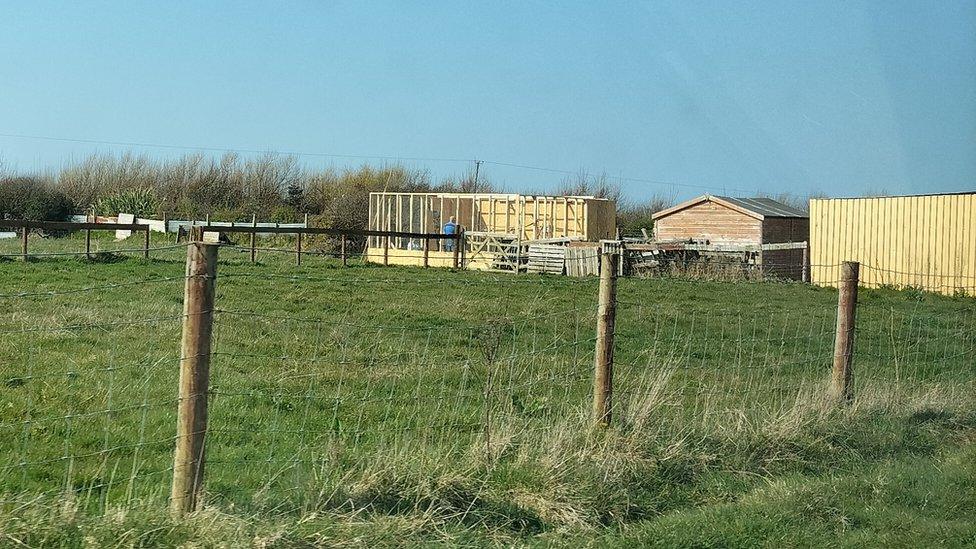
Mr Rose appeared to be building aviaries on newly purchased land
In a blog post on the sanctuary's website in January, Mr Rose appealed for donations to help pay for the aviaries, claiming the charity had lost money. He said: "Following recent events where money was lost due to a scam, we really need your help more than ever."
It is true the charity was duped out of £5,000 in October last year but the BBC has seen a bank statement indicating the cash was quickly reimbursed.
The charity had also received more than £17,000 in Covid grants but £10,000 of this money is not mentioned in accounts submitted to the Charity Commission.
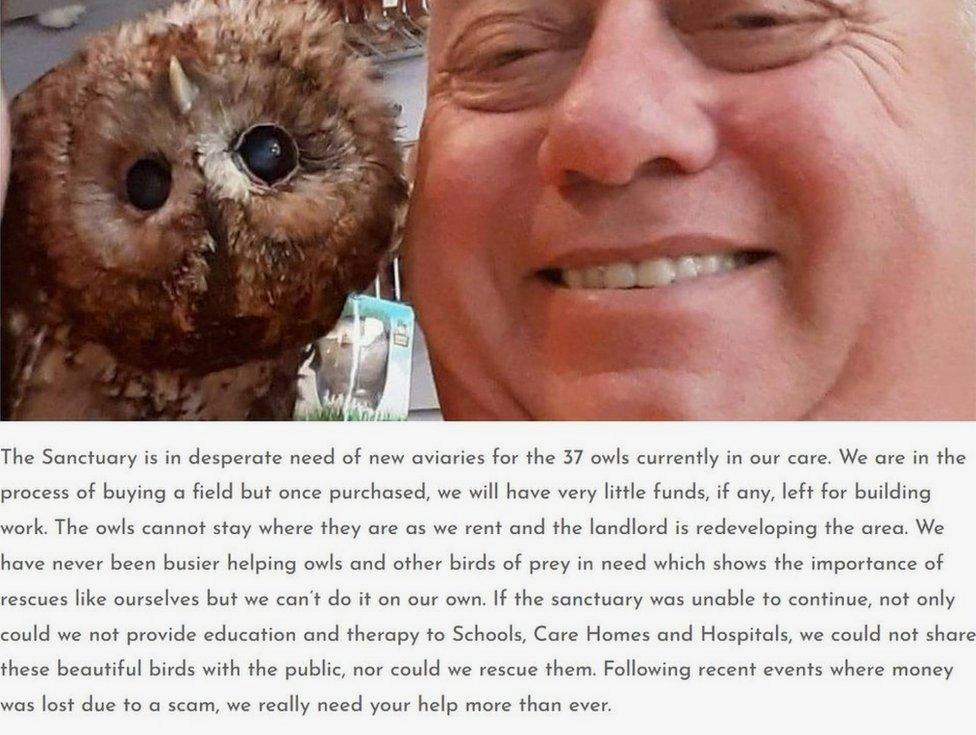
Screenshot of an Owl Sanctuary website blog posted 18 January
Unhappy with the way they felt the sanctuary was being run, the former employee resigned.
Issues with the charity subsequently came to light on 7 March after the RSPCA, Cumbria Police and Barrow Borough Council carried out animal welfare raids and seized 30 birds of prey.
The RSPCA said it could not comment while its investigations continued.
Mr Rose is due to appear before magistrates in Barrow in October, charged with five offences under the Animal Welfare Act 2006.

Follow BBC North East & Cumbria on Twitter, external, Facebook, external and Instagram, external. Send your story ideas to northeastandcumbria@bbc.co.uk, external.